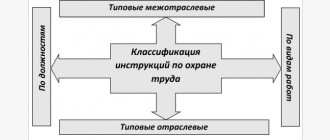Pregnancy is the most magical event in a woman’s life. After the storm of emotions calms down somewhat, the question arises in your head about when to talk about pregnancy at work and how the team will react to such news. Indeed, despite the fact that pregnancy is a purely personal matter for a woman, it worries not only her, but also her employer. After all, being an employee in this position means frequent requests for time off, sick leave and, of course, ultimately, maternity leave. We’ll talk about when to talk about pregnancy at work and how to do it correctly in the article below.
Pregnancy and work
This is a unique time when a woman feels important and life-giving. For an employer, a pregnancy certificate is often a surprise. But the law protects employed women in position from dishonest employers. After presenting the certificate, the woman can calmly finish her term and go on maternity leave, knowing that she will be paid all the benefits.
The interesting position of the worker is not immediately noticeable. Therefore, very often ladies are in no hurry to admit to management that they are pregnant. There is nothing reprehensible in this. A woman can report the news at any time convenient for her before going on prenatal sick leave. Such news can be quite unpleasant for the employer. And a pregnancy certificate will help avoid conflict situations.
Attitude towards pregnant women at work
Managers are not very supportive of late notification of pregnancy. After all, they need to look for a replacement worker. They really don’t like it when a girl who has just started work suddenly announces that she is pregnant. But such women cannot be punished by law.
But it happens that the boss may be dishonest and may say that the woman did not bring the certificate, which means that until her belly has grown, she has no evidence of an interesting position, and she will work according to the usual schedule. Or that the certificate has been lost. In this case, you should copy the pregnancy certificate specifically for the employer and put a signature on it from the HR department employee when submitting the certificate itself. It never hurts to have additional guarantees.
How to prepare for a serious conversation
So, you have chosen the right moment and decided to talk to your employer about everything. What should be done:
Before the crucial meeting, make a conversation plan. You don’t need to write everything on paper, but if it’s more convenient for you (taking into account the girl’s memory and the emotional background of the pregnant woman), you can make notes on a piece of paper.
Know your employment rights and responsibilities in advance. In case of disagreements or disputes with your boss, you must understand exactly what you can give in and what is rightfully yours.
Harmful working conditions for pregnant women
At work, a pregnant woman faces many dangers. Especially if this is production in a large factory. There is always a chance that a woman could get injured. It is better not to work at all during pregnancy in hazardous enterprises; it is recommended to immediately switch to gentle work. While carrying a child, you should also avoid not only physical, but also moral stress. A pregnancy certificate allows you to legally justify the need to change your form of work to a more acceptable one.
Benefits for pregnant women at work
Being a happy expectant mother is in itself a huge privilege for a woman. At work, a pregnant woman has every right to simplify her work schedule. For example, reduce your working hours or switch to light work in another department, where there is less stress and health risks. The manager must provide the expectant mother with the sick leave benefits she is entitled to before and after childbirth. Therefore, a pregnancy certificate is brought to the employer at work as early as possible.
Preparing for a conversation with your boss
Each expectant mother has the right to decide for herself when to inform her employer about pregnancy. But how to do that? You need to prepare for a conversation with your superiors. It is better to have documentary evidence of pregnancy on hand. It is also worth knowing your rights and responsibilities under the new regulation. Before the meeting, you should decide what the woman’s goal is. Do you need to keep your job, switch to light work now, or receive a compensation payment and quit early? You need to determine for yourself the main points in the negotiations in order to know what to agree to and what not to.
It is better to make an appointment in advance. The topic is a personal matter. It is worth considering who can replace the employee during the period of absence in order to propose a candidate and have time to bring the person up to date. It may be better to make this proposal in writing to show the employer and leave it after the negotiations. If the boss is a man, then you should express your thoughts briefly and clearly, if you are a woman, you can say more about the state and express emotions. When the employer formulates the conditions to which the employee agrees, it is better to put the agreement on paper.
Why should you take it?
Our state is quite developed at present and is trying to take care of its citizens, improving their quality of life. These citizens include pregnant women and those on maternity leave for up to one and a half years.
It’s not easy for a woman to get up for work every day when her belly is already noticeable. It becomes difficult to walk and climb stairs. Moreover, my memory begins to fail, and constant mood swings torment me. State support comes in handy here. You just need to get a pregnancy certificate and give it to your manager. For an employer, a pregnancy certificate is an important document, according to which he will be able to transfer the employee to easier working conditions.
Applying for maternity leave, step-by-step procedure
The legal concept of “Maternity leave” does not exist in Russian legislation. This means maternity leave and further leave to care for your child. The right to such leave is guaranteed to women under Art. 255 Labor Code of the Russian Federation and Art. 256 Labor Code of the Russian Federation.
Leave is divided into different types: 1. Maternity leave (BR leave): – for 70 calendar days before the day of birth and for the same number of days (140 in total) – after the birth of the baby; - 70 calendar days before the day of birth and 86 days after the birth of the child (156 in total) - if the birth was complicated; - 84 days before the day of birth and 110 days after birth (194 in total) - at the birth of two or more children (in case of multiple pregnancy).
2. To care for a child up to one and a half years old (children’s leave).
3. To care for a child up to three years old (childcare leave).
Thus, the benefits that are paid on different types of leave can be conditionally called: the BR benefit and the UR benefit.
Current laws indicate that, in addition to officially working women, there are other categories of women who may qualify for BR benefits: • Full-time students at universities, technical schools and colleges; • Women who lost their jobs due to the closure of an enterprise or individual entrepreneur, as well as due to a reduction in the number of employees.
The list is expanding in relation to the SD benefit and it additionally includes the following categories of persons: • Citizens of Russia who live abroad and are on a business trip; • Foreign citizens, refugees, stateless persons who have been living in the Russian Federation for a long time; • Foreign citizens and persons who do not have citizenship, but with officially issued insurance.
You also need to say the following: when the BR leave ends, the woman can return to work, and entrust child care (which officially lasts until the child reaches the age of one and a half years) to close relatives or guardians, if any. UR leave can be divided into parts among those who can receive it.
Who is required to pay maternity benefits?
Federal Law 255 (adopted on December 29, 2006) indicates that the following persons are required to pay benefits: • individual entrepreneurs, farm and peasant farms; • Legal entities that have officially registered their business activities within the country (it does not matter whether it is a foreign or Russian company); • Individuals who are not considered individual entrepreneurs.
The law also indicates that entrepreneurs can reduce the payment of contributions to the Social Insurance Fund to an amount equal to the benefits paid.
Registration of maternity leave
Determining the start and end dates of maternity leave
Maternity leave for pregnancy begins from the moment the obstetrician-gynecologist issues a certificate of incapacity for work at the 30th week of pregnancy. To determine when it ends, another 140 days are added to the first non-working day. The next day after the end of this period will already refer to maternity leave, which a working woman can go on at will. If two or more babies are expected, the sick leave is issued two weeks earlier, i.e. at 28 weeks of pregnancy and is closed only after 194 days.
A special case is childbirth with complications. After all, even with a normal pregnancy, not to mention a problematic one, even the most excellent gynecologist will not be able to predict its course. Therefore, if the birth is recognized as complicated, the mother in labor is issued another sick leave for a period of 16 days, which can be provided at her request immediately after the end of the required 140 days.
An employer does not have the right to dismiss a pregnant employee and is obliged to provide her with the leave due to her.
Documents to be provided at the enterprise:
The employee must submit a package of documents to the personnel service of the enterprise, which consists of: - an application addressed to the head of the enterprise containing a request for maternity leave and the payment of the due benefits; – a certificate received from the antenatal clinic of a medical institution certifying registration; – a sick leave certificate duly issued by a gynecologist regarding the onset of pregnancy and the upcoming birth; – certificates from various enterprises about wages, if the woman worked in more than one organization in the two years preceding her leave.
Documents are reviewed by the employer within ten calendar days. The funds accrued for payment are issued to her on the day of payment of the next salary, which is established by the enterprise.
The application is written in any form, but must contain the following information:
– a hat (from whom to whom, indicating full name and position); - document's name; – a request to provide maternity leave with dates indicated (based on sick leave); – a request to accrue the required benefits (at the request of the applicant); – a convenient way to transfer funds (for example, to a card, or by postal order); – a list of attachments (sick leave, if any - a certificate from the antenatal clinic about early registration for pregnancy); – date, signature, surname and initials of the applicant.
Employer's order to grant leave
To fill out an order, you can use the unified form No. T-6. If the employer refuses to use standardized forms, the order for maternity leave is drawn up according to a form that the employer independently develops and approves.
The order is issued by the head of the organization in which the woman works, based on her submitted application and certificate of incapacity for work.
The order must contain the following data: – a header with the details of the organization, the title of the document; – the essence of the issue (to provide the employee with maternity leave from the specified start and end dates according to sick leave); - additionally - assign the employee payment of cash benefits; – a list of reasons (employee’s statement, sick leave, certificate from a gynecologist); – position, signature, surname of the head of the organization, date; – familiarization list (you can write the names of those familiarizing yourself by hand).
Vacation before maternity leave
Many expectant mothers find it difficult to work with a decent belly even before the long-awaited 30 weeks. For such cases, Russian legislation provides for the provision of the next annual leave in advance of maternity leave, despite the fact that it was planned by the employer according to the vacation calendar for a later time. Such leave lasts, as usual, 28 calendar days or more for established categories of workers with special working conditions.
However, a pregnant woman can exercise this right only if she has unused vacation during the current period of work. If the employee took such leave in advance, and upon leaving maternity leave she quit and did not work these days, then vacation pay will be deducted from her.
Calculation of maternity benefits
The benefit is calculated 10 days before the start of the vacation. At the same time, in order to respect her rights, the BR benefit must be calculated as accurately as possible. The calculation uses a formula that takes into account income for two years. The result is earnings in one working day. This indicator is needed in order to calculate payments for vacation recommended by doctors.
So, the following steps are taken for calculations. Average daily income is calculated by adding up all earnings for two years and dividing them by the number of days the woman was at work.
Let's take the following situation as an example. In 2012, Sidorova S.S. started working at Refinery LLC. On December 25, 2014, she was supposed to go on BR leave, which would have lasted 140 days. The leave application was submitted on January 1, 2015. Now we calculate the amount of the BR benefit.
First you need to find out the number of working days for 2013 and 2014. It will be equal to 730 days. For a couple of years of work at this enterprise, Smirnova S.S. there was not a single day that needed to be subtracted from the billing period. In 2013, her total income was equal to 700 thousand rubles, and in 2014 – 730 thousand rubles.
Based on the legislation, we cannot take into account the money actually earned for a specific period, since the state has already established a limit value: - for 2013 in the amount of 568 thousand rubles. – for 2014 – 624 thousand rubles – for 2015 – 670 thousand rubles.
It is clear that the calculation is made based on the maximum established values, and real earnings are not taken into account.
The next step is to calculate your daily earnings. Using the formula, we get 1632.9 rubles. In 2014, the employee worked until the end of the year and received her full salary for December. At the next stage, seven days are subtracted from the total number of vacation days. Thus, 133 days must be multiplied by 1632.9.
Thus, the amount of paid maternity sick leave will be 217,175.7 rubles.
You can calculate the amount of the insurance benefit on the FSS website using an online calculator (https://portal.fss.ru/fss/sicklist/guest).
Providing maternity leave 2021: step-by-step procedure:
1. Receive a leave application and a certificate of incapacity for work (sick leave) from the employee.
The application is filled out directly by the employee. The head of the organization must put a resolution on leave on the application (the inscription in the upper left corner of the application: Agreed. Signature. Explanation of signature. Number).
2. Receive an application from the employee and a certificate from a medical institution confirming registration in the early stages of pregnancy. The application is filled out directly by the employee.
3. Register applications in the application log.
4. Issue an order to pay a one-time benefit to women who registered with medical institutions in the early stages of pregnancy.
5. Issue an order to grant leave to the employee.
6. Register orders in the journal for registering orders (instructions) for personnel with a storage period of 5 years.
7. Familiarize the employee with the orders. The order should be printed and familiarized with it to the employee against signature - at the bottom of the order the employee must sign and put the date of familiarization. If it is impossible to familiarize the employee with the order or he refuses to affix a signature, an entry must be made on the order: “Familiarized, refused to sign” or “It is impossible to familiarize the employee with a signature due to…”.
8. Calculate and pay maternity benefits.
Maternity benefits are paid to an insured woman in the amount of 100 percent of average earnings if she has an insurance period of at least 6 months. Women who register with a medical institution in the early stages of pregnancy (up to 12 weeks) are entitled to a one-time benefit in addition to the maternity benefit. Deadline: within 10 calendar days from the date of the employee’s application.
9. Reflect maternity leave on the time sheet. The entire period of maternity leave is reflected: opposite the employee’s last name, the letter “P” or numeric “14” code is entered in the upper lines, and the lower ones remain blank.
10. Enter information into your personal card
When to bring a certificate to work
Better as soon as possible. In addition, those who registered for pregnancy before the twelfth week have the right to receive a small amount from the state for vitamins and other medicines. It is very important to provide the employer with a pregnancy certificate, which officially confirms the interesting position and the right to some special working conditions.
Having warned the manager about her situation in advance, the woman no longer has to worry about hiding something from him that he may not like. The boss, of course, will be a little puzzled, but very soon he will calm down, reconcile and begin to look for a temporary replacement for his employee during her maternity leave. But it is better to bring a certificate to the personnel department when the gestational age indicates that the child has formed correctly and everything is fine with him. This usually becomes clear at 9-12 weeks. This way, if something goes wrong before this time, you won’t have to unnecessarily irritate the manager.
Sometimes the employer himself demands a certificate of pregnancy if a pregnant woman told him the news, but she herself does not know that she needs to present a certificate. But not every leader can do this. Perhaps this can only be the most conscientious or who has previously received punishment for non-compliance with the Labor Code in relation to pregnant women.
Early announcement of an "interesting situation"
When should you tell your employer about your pregnancy? You can first obtain medical confirmation. A certificate of pregnancy can be issued to the expectant mother in the housing complex as soon as this fact is established by the gynecologist, that is, starting from 5-6 weeks. But is it worth it to notify your superiors about your special status so early? Do I need to officially inform my employer about my pregnancy or can I get by with a conversation? In general, a woman is not obliged to report her situation before going on maternity leave, but this will prevent her from ruining relationships with her superiors and colleagues, who will have to urgently look for a replacement and train a new person.
Why do you need a certificate?
First of all, a pregnancy certificate for an employer is a document that is legal in nature and must be taken into account. A pregnancy certificate is needed in order to legally provide a woman with all the benefits due to her and create acceptable conditions appropriate to her position at work. Such a paper documents the position of the employee and provides her with new rights.
A pregnant woman will be able to leave her place during working hours, for example, to visit a doctor or get tested, but this time will be counted and paid as time worked.
The certificate will help the woman avoid business trips and work on holidays and weekends.
Timely submission of the document allows you to legally switch to light work if the main place of work turns out to have harmful or difficult working conditions for pregnant women.
Such a worker cannot be fired under any pretext, thus, the expectant mother is protected by law from all sides.
How to tell management
The manager's reaction to such news depends on the relationship within the organization, his understanding, as well as the conditions under which the woman was hired.
If, when applying for a job, it was stated that going on maternity leave is undesirable, you should prepare for a difficult conversation and be ready to fight back when trying to “survive” from work
.
If you have a good relationship with your employer, it is recommended to report pregnancy immediately, since constant absences for appointments and examinations can raise many questions.
If it is necessary to visit a doctor, have an ultrasound scan, take tests or undergo a medical examination, the expectant mother can leave the workplace at any time by notifying the manager. He cannot prevent this.
Does a boss have the right to fire someone from work during pregnancy?
Legislation carefully protects the rights of employed pregnant women.
It is almost impossible to fire an expectant mother, even if there are violations on her part. The only reason why a woman can be fired is the complete liquidation of the enterprise. Unpleasant situations often occur in which the expectant mother is forced to write statements of her own free will. This should not be done, and if there is strong pressure, it is recommended to contact the labor safety inspectorate. No matter how much the employer wants to get rid of the employee who will soon go on maternity leave, if she behaves competently, he has no chance of this.
Does he have the right to demote?
During pregnancy, women are prohibited from working in difficult and hazardous conditions. An employee has the right to write an application for transfer to light work, in which there are several nuances. The employer must choose easier working conditions, while leaving the level of wages the same. With the consent of the woman herself, the position can be reduced, as well as the salary, but this is possible only on her initiative.
A demotion with a reduction in salary at the request of the employer due to pregnancy is impossible; such an employer’s decision can be easily appealed to the labor inspectorate and in court.
Rights of a pregnant woman at work
A woman expecting a child has some concessions that are not available to others:
- excommunication to medical institutions at any time;
- transfer from difficult working conditions;
- ban on dismissal and layoffs;
- ban on overtime and night work, business trips without personal consent.
What if you don't bring it?
If the employer does not bring a pregnancy certificate to work at all, then he will learn about the employee’s situation before her maternity leave. But this will look ugly on the part of the employee, and the manager will take this into account in the future. No boss likes it when an employee hides something from him. In addition, the conditions that the certificate provides to facilitate work in the remaining few months before the birth will not be met if the document is not transferred to the personnel department. Of course, some women already have good, quiet work that does not require changes even during pregnancy. In this case, it would be right for the girl and for her further good cooperation with this organization to at least verbally inform the boss that he will soon have to look for a replacement.
Vacation and cash payments
Annual leave must be paid in full and regardless of the length of work in this company. Maternity leave lasts 70 days (for multiple pregnancies - 84 days) before childbirth and 70 after (110 - for the birth of two or more children, 86 - for complicated births). During this time, social security benefits are paid.
Vacation pay is paid upon provision of sick leave. If the employee’s annual income is less than 415 thousand rubles, the calculation is based on the average amount of income per day multiplied by 140-180 days. The employer can optionally add 50 thousand rubles to this amount. The woman does not pay tax on these amounts. Immediately after the BiR leave, parental leave begins. Through social insurance, a woman has the right to receive 40% of the average monthly salary for the previous year. If your annual income exceeded 415 thousand rubles, then the maximum you can get is 13,833 rubles per month. During the period of labor and child care leave, the length of service is not interrupted.
Sample pregnancy certificate
It is important for the employer that everything is completed correctly and that he does not have to pay fines later. Therefore, he can ask for a pregnancy certificate, which should look like this:
"Reference
Given full name (Ivanova Ekaterina Ivanovna) year of birth (04/01/1983), that she is under supervision in the antenatal clinic.
Diagnosis: pregnancy has been established: number of weeks (10 weeks), proceeds without deviations.
The certificate was issued to be presented at the place of work.
Date______ Doctor’s signature______________"
For an employer, receiving a pregnancy certificate from an employee is often stressful. Therefore, the sooner you bring it, the better.
Receipt times
When is a pregnancy certificate given to the employer? The time frame is not regulated by any article of the Labor Code. This means that the time frame for obtaining a certificate from a gynecologist can be any, at the request of the woman herself, from the moment pregnancy is established until she goes on leave before giving birth. But usually women are in no hurry to receive this certificate, since it is not always possible to be sure that the pregnancy is successful, or to avoid unnecessary conversations. First, all the required examinations and analyzes are carried out, and after good results, you can confidently take a certificate of your excellent position and submit it to your supervisor. In addition, receiving and submitting a certificate to the organization’s human resources department before twelve weeks of pregnancy gives the right to receive additional payments, although not large ones. And it will also be possible to ask for time off to see a doctor with payment remaining after submitting the certificate. So the woman can determine the timing of receiving the document herself in accordance with her needs.
The optimal time to notify the employer about the upcoming maternity leave
Few people delve into issues of labor legislation until they are affected by some specific situations. Most expectant mothers also do not think that once they become pregnant, they enter into a new phase of relationship with their employer. So new that the Labor Code (Articles 255, 261 of the Labor Code of the Russian Federation) specifically enshrines rules governing the behavior of the expectant mother during this period and the employer’s attitude towards her. A pregnant woman needs to remember the basic provisions of these laws in order to know how to act if the employer tries to fire her, transfer her somewhere, send her to the night shift, etc. More information about the rights of a pregnant woman at work is here.
The law regulates the employer’s relationship with a pregnant woman starting from the moment the pregnancy reaches 27-30 weeks. Depending on the characteristics of the pregnancy, during this period the employee may go on leave under the Labor and Employment Regulations.
At this stage, each party knows what to do and adheres to the rules established by the Labor Code. Failure to comply with the required procedure on the part of the maternity leave will lead to her losing a large sum. Failure by the employer to comply with the provisions of the law protecting the rights of a pregnant woman is subject to sanctions.
But there is no explanation in any article of the code about when to inform your employer about pregnancy according to the law. During this period of time, until the woman approaches the stage of going on maternity leave, she is free to act as she pleases. And according to generally accepted standards of industrial ethics, the expectant mother, of course, needs to inform her immediate supervisor about her upcoming maternity leave. This is especially important to do if the employer must find a replacement for an employee who is retiring for a long period of time.
Additionally
In any case, when to tell an employer about your “interesting” position is the woman’s choice. If her pregnancy is proceeding well, and the working conditions are not harmful and cannot harm the unborn baby, you can wait until 18-20 weeks to report pregnancy. However, you shouldn’t delay this conversation too long. When pregnancy becomes obvious, the employer himself will notice it, but he will already have reason to consider the woman an unscrupulous and irresponsible employee.
To avoid causing premature problems to your manager, you should not report pregnancy earlier than 12 weeks from the day of conception. The onset of the due date will be determined by the antenatal clinic doctor. She will definitely give a forecast for the upcoming birth. If a woman has reached this period, there is a high probability of further successful pregnancy and childbirth.
If the examinations carried out suggest pregnancy and childbirth without complications, it is also known that one child should be born or a multiple pregnancy, the expectant mother can convey this information to the employer. It will be useful for him because it is already possible to determine the date of going on maternity leave. If the pregnancy is singleton, you can pre-calculate benefits, dates of leaving labor and labor leave and going on care leave, etc. Since the Labor Code of the Russian Federation determines the duration of standard labor and labor leave to be no more than 140 days.
Also, when informing about the upcoming maternity leave, the expectant mother can discuss a number of issues. This is the possibility of working until the very day of birth, if it is not profitable for her to go on maternity leave, taking annual leave before or after maternity leave, the possibility of transferring to another job, to another workshop and other nuances.
You need to warn about your interesting position so that the employer does not involve the pregnant woman in night and overtime work, as well as on holidays and weekends. A woman has the right to refuse business trips.
As we see, there can be many different organizational issues in connection with pregnancy and, therefore, there is no point in starting to discuss them too early. After all, it may happen that the pregnancy is terminated early.
It is worth noting: the optimal period when you need to inform your employer about pregnancy is 12 weeks.
Law on pregnant women at work
According to the law, pregnant women cannot be denied employment (Article 64 of the Labor Code of the Russian Federation), and they should not go through a probationary period. But many managers are cunning and will definitely find a way not to hire a woman if she has a noticeable belly. You can, of course, ask him for a written refusal, but you never know what he can write in it. Moreover, it is unlikely that a pregnant girl will go to court with this refusal to force the employer to hire her. An expectant mother rarely plans to waste her nerves.
According to the law, the expectant mother cannot be fired for any reason other than the liquidation of the company (Article 261 of the Labor Code of the Russian Federation). But even in this case, the organization must register the woman with the employment center and pay all compensation for unused vacation and benefits for job loss. Even failure to comply with labor regulations or absenteeism by law does not allow pregnant women to be fired. If controversial issues arise, a pregnancy certificate for the employer helps put everything in its place.
A pregnant woman can resign herself or by mutual agreement with management. But the director does not have the right to force an employee in a position to write a letter of resignation of her own free will. For this he faces criminal punishment (according to Article 145 of the Criminal Code of the Russian Federation).
An employed expectant mother at thirty weeks of pregnancy is legally entitled to seventy days' leave before giving birth, as well as 70 days' leave for the period after childbirth (according to Article 255 of the Labor Code of the Russian Federation). When more than one child is born, the time frame increases and vacations are scheduled earlier. To obtain it at the clinic, a gynecologist issues a sick leave certificate for the appropriate period. Payment for such sick leave is made based on the average daily earnings in the amount of two years of work. If the birth took place by caesarean section, then additional sick leave is issued for another sixteen days and paid according to the same system.
Also, before going on sick leave for pregnancy and childbirth, a woman has the right to take annual leave outside the schedule and receive the vacation pay due.
A girl temporarily replacing another employee, if she finds herself in a position when that same employee returns, can be fired, but only after she gives birth.
Now it’s clear how to get a pregnancy certificate for your employer. This document is very important. It protects the rights and establishes certain privileges of a pregnant employee.
HR issues with pregnant workers
The door to the secretariat opened and Lyudochka from the accounting department ran in.
She joyfully announced: “I’m expecting a baby, it’s already the fourth month!” Secretary Marina was happy for Lyudmila, but thought to herself: “What is supposed to happen to pregnant women? The personnel officer was laid off.
But I haven’t encountered women on maternity leave, I’ll have to study this issue.” Let's help Marina - we'll look at what documents HR officers prepare for expectant mothers.
IF AN EMPLOYEE REQUESTS PART-TIME WORK
At the request of a pregnant employee, the employer is obliged to establish a part-time or part-time work week for her (Article 93 of the Labor Code of the Russian Federation) with payment in proportion to the time worked. That is, the Labor Code of the Russian Federation in this case does not provide the employer with the right to choose - he is forced to take into account the wishes of workers in this category and transfer them to part-time work.
The Labor Code does not establish a specific duration of part-time work, so the parties to the labor relationship will have to agree on this independently.
Since the courts usually take the side of the pregnant employee, in this case it is worth meeting her halfway on the issue of agreeing on the number of working hours.
To establish a part-time work schedule, the employee is required to provide an application (Example 1) and a certificate of pregnancy, since it is pregnancy that gives her the right to demand the establishment of such a work schedule.
The employee’s application should be registered in the register of incoming documents and an approval visa should be obtained from the manager.
The agreement on hours of work in part-time mode must be recorded in an additional agreement to the employment contract (Article 72 of the Labor Code of the Russian Federation),
since the introduction of part-time work is a change in the terms of the employment contract (Example 2).
It is also necessary to issue an order establishing a part-time working schedule for the employee (Example 3).
IF THE EMPLOYEE NEEDS TO BE TRANSFERRED TO ANOTHER JOB
According to part one of Art. 254 of the Labor Code of the Russian Federation, a pregnant employee must have production or service standards reduced, or she must be transferred to another job that excludes exposure to adverse production factors. The basis for this is a medical report and a statement from the employee (Example 4).
Sometimes the expression “light work” is used, but there is no such term in the Labor Code of the Russian Federation. Both when the standards are lowered and when the employee is transferred to another job, her average earnings from her previous job will remain the same if the wages from the new job are lower.
The medical report must comply with clauses 13, 14 of the Procedure for issuing certificates and medical reports by medical organizations (approved by order of the Ministry of Health and Social Development of Russia dated May 2, 2012 No. 441n, hereinafter referred to as the Procedure). In accordance with the Procedure, medical reports:
• are drawn up in any form;
• are issued with the stamp of the medical organization or on the letterhead of the medical organization (if available);
• signed by medical specialists involved in issuing a medical opinion;
• signed by the head of the medical organization;
• certified by personal seals of medical specialists;
• certified by the seal of a medical organization.
The employee’s application is also registered in the journal of incoming documents and is endorsed by the manager.
Transfer to another job is permitted in accordance with
from Art. 72 of the Labor Code of the Russian Federation by agreement of the parties. In this case, an additional agreement to the employment contract is drawn up (Example 5) and an order for the transfer of the employee, which is drawn up according to the unified form No. T-5 or according to the form approved by the organization (Example 6).
IF AN EMPLOYEE NEEDS TO BE RELEASED FROM WORK
If an employee applied for a transfer and attached a medical report, this does not mean that she is obliged to transfer to any position offered by the employer, since the law does not provide for such an obligation.
Therefore, if the parties have not agreed on which position to transfer the employee to, or the employer has no vacant positions, then the employer is obliged to release the employee from work by virtue of part two of Art.
254 of the Labor Code of the Russian Federation while maintaining average earnings (Example 7).
The same should be done if the employee needs to wait for a transfer to another place of work (for example, if a vacancy becomes available in the near future).
In any case, it must be assumed that a pregnant employee should not be exposed to the adverse factors specified in the conclusion.
The time a pregnant employee is released from work must be correctly reflected in the time sheet.
Form No. T-13 is filled out according to the following rules: in the upper lines of column 4, an alphabetic ( HO ) or numeric ( 34 ) code is entered opposite the employee’s last name, and the lower lines remain blank (Example 8).
Why a document may be needed
A certificate from a doctor stating that a woman is expecting a child (indicating the duration of pregnancy) is sometimes necessary to present to the registry office when queuing for marriage. Then the wedding is planned for an earlier date legally. The bride and groom will not have to wait for the probationary period specified by law.
A certificate of pregnancy brought to court will help mitigate the punishment.
A certificate presented at the place of study will help you apply for academic leave during the last weeks of pregnancy and childbirth and will allow you to continue your studies as soon as possible.











